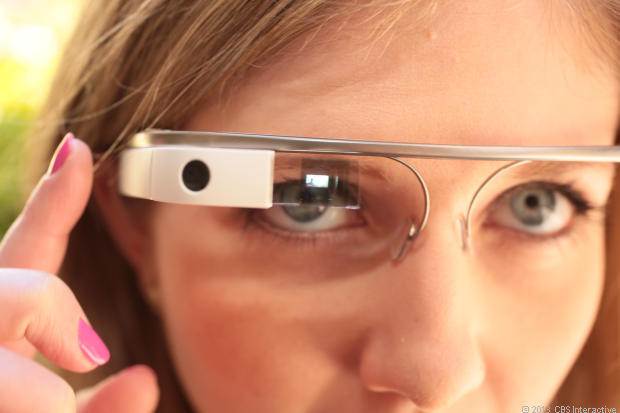
Programs are being developed by Microsoft and Google that are able to track our future movements; rising numbers of CCTV cameras are being fitted all around the country - one camera for every eleven people; Bio-metric scanners are being implemented in school cafeterias, now that pack lunches are to be banned, as well as the application of RFID chips around student’s necks so that their movements can be tracked at all times; and, of course, George Osborne has been proudly showing off the ‘Jawbone Up’ Bracelet around his arm, the new bracelet that tells you how much to eat and sleep by constantly monitoring the behavior of the user.
And now, Google’s Glass - computerized glasses - are being tipped as a stepping stone towards a micro chip being implanted into out brains so that we can access Google at any place and any time. Google is staking its future on a new service which will use the information it holds on registered users to automatically predict their search needs and present them with the data they want, apparently removing the need for the user to think for himself!
Presumably, once inside the minds of its consumers, Google will be able to monitor our thoughts under the guise that it will be serving our needs and answering our queries. Currently this technology is being developed in order to help mentally handicapped and disabled people to operate certain machinery which undoubtedly benefits their quality of life, however the company makes no secret of the fact that they envision their technology being implanted inside the minds of everyone on the planet.
Ben Gomes, Google's Vice-President of Search said, “'We have to do this in the brain a lot better to make that interaction possible. We have impatience for that to happen but the pieces of technology have to develop.'
A couple of weeks ago we were being told that the NSA was accessing data collected by search engines like Google, of which PRISM operators - the program used to harvest such data - claimed that companies, such as Google, had assisted them in this accessing of data, despite Google’s denial.
The point is, however it has happened, is that these companies are harvesting our information and acting as a source for Government who is then able to access our personal data. This, then, opens up the concern that having a chip branded into our heads enables governments to not only know how we think and feel, but, worryingly, Big Brother would be able to tell us how to think and feel. Google’s data will be pinged directly into the heads of users, and the inevitable over reliance of this data, and lack luster in verification, would mean that many users will naturally accept the data being beamed into their heads as absolute fact.
UK schools are being targeted for the implementation of Bio-metric and RFID technology today, presumably because children accept such intrusion more readily and thus accept such technology for future generations, as they are more likely to accept such technology in the work place, if, and when, they find a job. No doubt Google’s new invention will be marketed towards the younger generations who, like in the case of RFID and Bio-metrics, are more accepting of these intrusions so that they can access Facebook whenever they want.
No doubt Google’s Glass will be the next fashion accessory must have this christmas taking those who buy into such technology one step closer to the inevitable microchip in their brains. If only Google’s motives were as see through as the Glass product they have manufactured.
